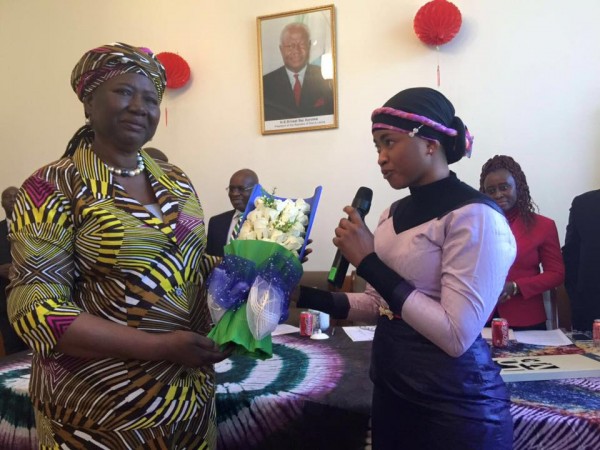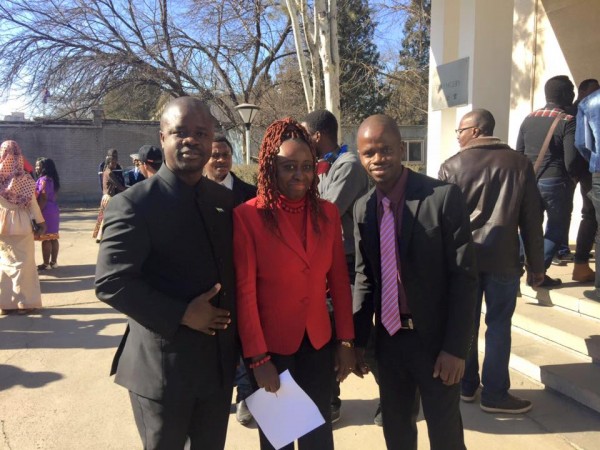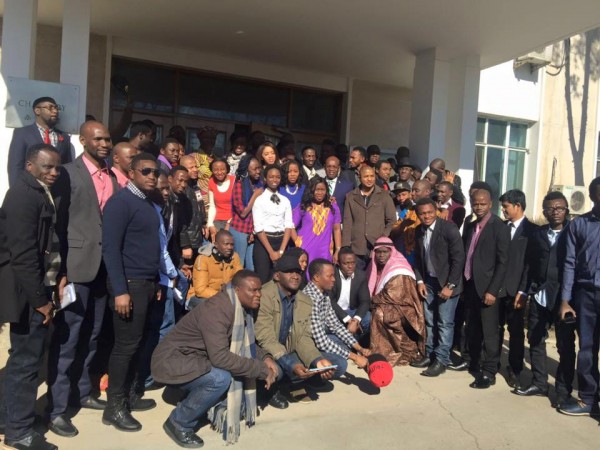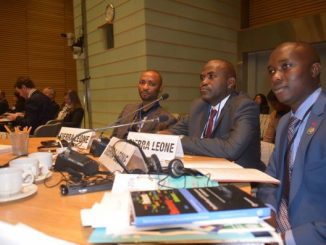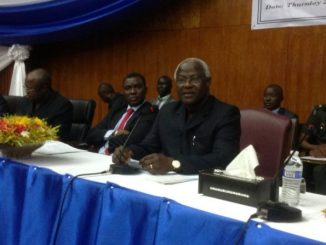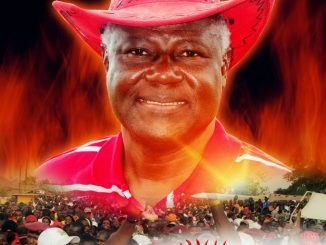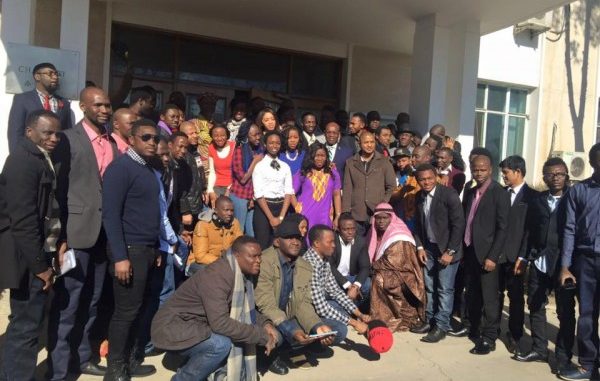
Sierra Leone’s Envoy to the People’s Republic of China, Monday 8th February said, with the establishment in 2000 of the Forum of Africa – China Cooperation – (FOCAC), investment strategy and cooperation of China with Africa took on a new phase, focusing on multi-lateral tenets and practices, but that notwithstanding, at the bilateral level, Chinese presence in Sierra Leone and its impact on the Socio-Economic development continue unabated.
Madam Kumba Alice Momoh, spoke at the opening session of the Annual Convention of the Sierra Leone Students Union in Beijing, China, an event that, this year, brought together over 100 students studying in various Chinese Universities, thus providing them an opportunity to deliberate on matters dealing with their welfare, amongst others, amongst others.
Speaking on “The Impact of Sierra Leone -China Bilateral Cooperation on the Socio-Economic Development of Sierra Leone”, Madam Momoh said, Trade Relations and Economic and Technical Cooperation between the two countries have an increasing surge.
The growth of Chinese investments in Sierra Leone, she said, has not only brought employment, but helped in lifting the bars of cooperation ties between the two nations, as well as boosting the trade profile of Sierra Leone, making reference to firms like Shandong Steel and Iron Mining Company and the Henan Guoji Investment Company which are amongst Chinese economic establishments in Sierra Leone.
Since 1971,she said, the ties between the two have been cooperation of, and between the two countries that gave birth to the existing bilateral relation that Sierra Leoneans could readily identify themselves with when China is mentioned, also reference, for strategic reasons, how Sierra Leone was supportive to China, during her bid to enter the UNGA.
This single act of cooperation by Sierra Leone to China “raised the level of our bilateral cooperation so high that the Chinese Government invited Siaka Probyn Stevens, President of the Republic of Sierra Leone for a State Visit in 1973, barely two years after the establishment of bilateral relation”, she said.
By the end of the tenure of office of President Stevens in 1985, Ambassador Momoh said, China had offered so much in infrastructure and capacity building in Sierra Leone, with their presence felt throughout the country, pointing at The Mange Bureh and Kambia bridges, the National Stadium formerly Siaka Stevens Stadium, the Military Headquarters, the Police Headquarters, the Youyi Building, the Dodo Hydro Electric Power Project in Kenema, the 7th Battalion Barracks among many other projects had been completed and commissioned for the good of Sierra Leoneans.”
Momoh also dilated on the development policy of President Ernest Bai Koroma which has been instrumental in the building of fundamental infrastructural bases for growth and development in Sierra Leone, referring to electric power generation, roads, transport and communication, and human resource development.
Sierra Leone, she said, has long had infrastructural deficit, which had adversely impacted on her growth. “The earlier part of our bilateral cooperation with China was focused on the enhancement of our infrastructural foundation.”
Madam Momoh dilated on the Chinese intervention in Sierra Leone in the fight against the Ebola Virus Disease, saying, China was the first country to send in support and medical staff which “was strategically important for increasing height of the existing bilateral cooperation between the two countries.”
Growth factors, she disclosed, are dependent on the capacity of human resource base and with the students pursuing their studies, she was certain, the growth indicators would be hitting a high in Sierra Leone in the not too distant future.
She encouraged students to use their experience and analytical expertise and make recommendations on how to improve the existing Sierra Leone-China bilateral cooperation as they are “the agents of growth and development that Sierra Leone is building.”
Also speaking was Unisa Sahid Kamara, the Embassy’s Head of Chancery, who explained to students, government’s commitments to meeting their needs and the role of the Embassy facilitating issues like provision of container annually for the shipment of personal effects of students, and the provision of annual allowances.
The event comes to an end 11th of February, to be climaxed with the election of a new executive for the academic year 2016/2017.
John Baimba Sesay
Press/Information Attaché
Sierra Leone Embassy-China

